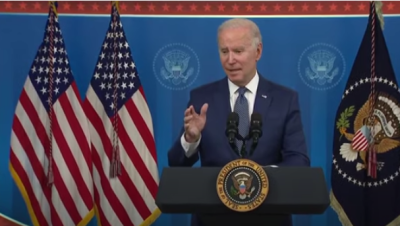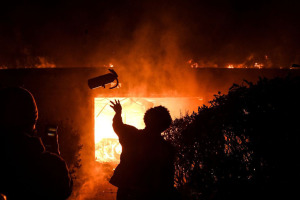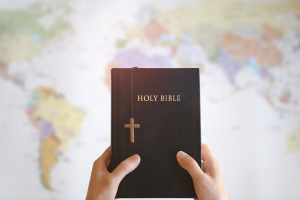Biden’s recent judicial nominees create more concern

President Biden closed out his first year in office with 40 judges placed on the federal bench; a record number of confirmations not seen since Reagan.
As the new year starts, it doesn’t appear Biden’s push to “restore balance” to the judiciary is slowing down.
Recently, the president announced his 12th round of federal judicial nominees, a wave that included candidates for two important appellate court vacancies on the 11th Circuit and the D.C. Circuit.
Several of Biden’s nominees so far have not inspired confidence on religious liberty. Their records show they’ve worked against the protection of this fundamental freedom in the past. And his most recent picks are also raising red flags.
For example, Nancy Abudu — the 11th Circuit nominee — currently works for the Southern Poverty Law Center (SPLC), an organization famous for labeling political opponents as “hate groups” or “extremists.” Because of its dangerous, radical rhetoric, Abudu’s employment at the SPLC raises serious doubts about her capacity to serve on the federal bench as an impartial jurist.
Beyond the 11th Circuit, Biden’s nominee for the D.C. Circuit — Judge Michelle Childs — could also further push that influential court in a liberal direction.
The president already has one judge confirmed on the D.C. Circuit, Judge Ketanji Brown Jackson. With Judge Childs in the pipeline, Biden will get an opportunity to fill a second seat.
A vacancy on the D.C. Circuit — often called the “second highest” court after the U.S. Supreme Court — is prime real estate for several reasons. This court is different than other circuit courts due to the nature of the cases it hears, including highly sensitive issues such as national security, gun safety measures, food safety, labor law, election law and clean air regulations.
Additionally, D.C. Circuit judges are often contenders for the Supreme Court. Justices Ruth Bader Ginsburg, Antonin Scalia, Clarence Thomas, John Roberts and Brett Kavanaugh were all D.C. Circuit judges before being nominated and confirmed to the nation’s highest court.
If a Supreme Court vacancy does arise, Americans could be looking not only at one, but two potential front-runners that Biden can choose.
Recall one important fact: during the campaign trail, President Biden promised to nominate an African American woman to the Supreme Court. Both Judges Jackson and Childs check the box on those demographic characteristics.
The year ahead: Appellate court margins and mid-term elections
Beyond the D.C. Circuit, Biden could potentially make his mark on other appellate courts in 2022.
If he keeps up his current pace of nominations, the president could tilt the balance of the 3rd Circuit, where there’s currently a vacancy. Filling that slot would shift that court to a 7-7 split between originalist judges and activist judges. As of the date of this writing, there’s no pending nominee for this court.
Similarly, the 11th Circuit could also be pushed closer to a liberal majority. If Biden’s nominee to the 11th Circuit is confirmed, the balance would shift to six originalist to five activist judges.
But there could be some obstacles in the months ahead.
A vast majority of President Biden’s nominees so far were in states represented by two Democrats in the Senate. He’s largely refrained from trying to fill vacancies in states with a Republican senator. That trend is expected to continue for the near future, as the majority of current and expected vacancies are in blue states.
When a nominee is announced, it’s customary for the president to seek the support of home-state senators, which helps and increases the probability of the Senate confirming that judicial candidate.
As expected, the confirmation process tends to be smoother when a president and home-state senators are of the same party. This, at least in part, explains the success Biden is seeing in judicial confirmations.
But it’s likely Biden will have to begin addressing vacancies in states with Republican senators this year, which could mean more opposition to his judicial picks.
Finally, the mid-term elections in November are also a factor. The Senate is currently split 50-50 between the two parties, with Democratic Vice President Kamala Harris as the tie-breaking vote. This narrow difference, however, could mean the prospect of Republicans regaining control of the Senate. It’s possible that there could be a stronger push from Biden and his party allies to confirm as many judges as possible from now until Election Day.
Whether it’s religious freedom or other constitutional liberties, federal judges wield considerable power and influence over the lives of Americans. Indeed, their rulings and decisions are in many cases the difference between living in liberty — or having our God-given rights taken away.
In this defining moment, it’s critical that America’s courts are filled with judges committed to the Constitution and the rule of law — who will rule according to principle and not politics. As the President puts forth more of his nominees, First Liberty will continue to provide the facts and information if we uncover any of them who have a radical or unacceptable record on religious freedom.
Originally published at First Liberty.
Jorge Gomez is the Content Strategist and Senior Writer for First Liberty Institute. He has previously worked as a communications and messaging strategist for faith-based nonprofits and conservative policy organizations. He holds a degree in political science from the University of Central Florida and a master’s degree in public policy from Liberty University.



























